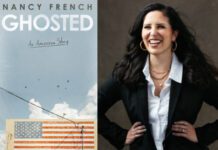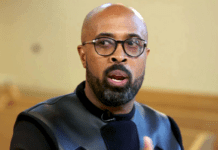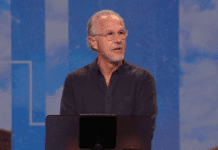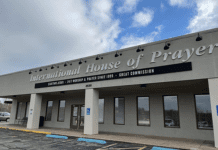“Up until 2020, we had a fantastic time,” Cox, 46, told Religion News Service in a phone interview.
The trifecta of the COVID-19 pandemic, the 2020 election and the racial reckoning in response to the death of George Floyd hit like a “wrecking ball.”
Grace Hills shut down in-person worship at the beginning of the pandemic, which prompted people to leave. More left when the church reopened and required masks. When Cox and a Black pastor preached a Sunday sermon together after Floyd’s death and said that yes, Black lives matter, that caused more turmoil. No matter what Cox did, someone was angry.
“It was sort of relentless,” said Cox, who stepped down as pastor at Grace Hill at the end of April. “My wife and I just found ourselves in the place of exhaustion.”
Cox talked to RNS nine days after his last Sunday as a pastor and said he hasn’t given up on Christianity — he hopes to find a new church to attend in the coming months — but pastoral ministry is no longer for him.
Leaving the ministry has challenges. After 24 years in vocational ministry, Cox felt he didn’t have many career options. For now, he plans to work for a local real estate company.
“I kept telling people, ‘You’d be amazed how many jobs you’re not qualified for,’” said Cox.
Even before COVID, the demands of the job wore on many clergy.
The Rev. Emily Reeves Grammer served as pastor of several United Methodist congregations in the Nashville area for a decade before leaving the pastorate in 2019. Grammer, who has two children, said balancing the demands of ministry and family life proved daunting.
Grammer, who is 36, said she loved being a pastor. But she worried about the long-term sustainability of her calling to be a pastor, given that the United Methodist Church seems headed for a schism.
“I am really concerned about the ability of a lot of United Methodist churches to keep supporting full-time clergy people,” she said.
While thinking about the future, she talked with older pastors who felt it was too late for them to change careers. The advice she got was this: If you are going to leave, do it now. So she resigned from her church and went back to school to become an English teacher.
“What I love most about being a pastor is gathering people together around a text and making meaning together out of that text,” she said. Teaching literature, she said, will allow her to do the same thing.
Charlie Cotherman, pastor of Oil City Vineyard Church in rural Pennsylvania, said that, in his part of the world, pastors who had strong denominational ties and relationships to draw on may have weathered the pandemic better than pastors who were on their own.
Cotherman, who directs the Rural Ministry Project at Grove City College, said most of the pastors he works with have done pretty well during the pandemic. Some had the advantage of being in small communities with low COVID infection rates, so they were able to return to in-person services quickly.
Still, he said, COVID has taken a toll. In some churches, members, especially families, left when services went online and just haven’t come back.
“Some of these small churches in rural areas have a couple of young families,” he said. “For them to lose even one of them has been a really tough thing.”
Before he left the ministry, Weddle began a blog at FailingPastor.com, detailing some of his concerns about the ministry. Weddle said he gave the ministry his best for 21 years. But being a pastor proved an almost impossible task.
“Ultimately, you want people to grow in Christ — to be caring, making sense of the Bible and applying it to their life,” he said. “And, you know, for thousands of years it’s been very difficult to get people to do that. So, the job is inherently frustrating.”
Leaving the ministry has been a relief.
“I’ve been going to church,” he wrote recently. “I don’t have to do anything at a church for the first time in 21 years. I don’t have to worry about who isn’t there, or why, or who will be mad next. I don’t have to have regrets all afternoon and evening about how I messed up my sermon.”
This article originally appeared here.











